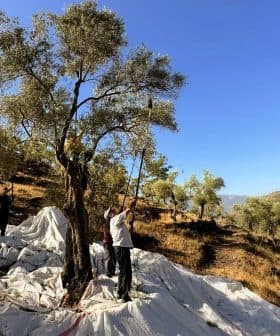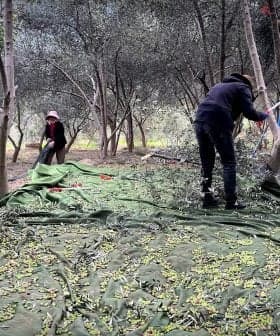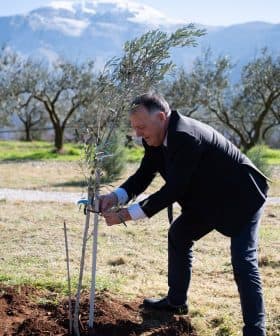Turkish Parliament Stops Coal Mining Operations in Olive Groves
The Turkish Parliament rejected a proposed bill to allow coal mining near olive groves, despite support from the ruling AKP party. The bill aimed to access coal reserves in regions where olive farming is predominant, sparking protests from farmers and environmental organizations.
The Turkish Parliament will not discuss a proposed bill allowing coal mining operations next to or within olive groves.
The ruling Justice and Development Party (AKP) supported the highly controversial measure. Still, it was dismissed after a heated session of the Parliament’s Energy Commission.
The bill’s promoters aimed to make the vast coal reserves in the country’s western Aegean region and southern coastline along the Mediterranean Sea accessible. They cited the need to sustain the operations of at least three electricity-producing plants.
Those are the areas where most of Turkey’s olive farming takes place. Many farmers, villagers and national environmental organizations have protested the proposal.
See Also:Olive Oil Business NewsAs those opposing the proposal entered the Commission with olive branches in their hands, Mustafa Elitas, AKP group deputy chair, said, “if a energy crisis occurs in the coming years, blame will be on those who try to impress us here by making a crown from an olive branch.”
Opposition lawmakers sided with the protesters and asked for the proposed bill’s repeal, arguing that it aimed at “plundering nature” when food security and the climate are at stake. They warned against the destruction of forests and olive orchards, which would be triggered by the establishment of new coal mines.
“Our friends are right in their reactions. However, we are concerned about the operation of three power plants in a period of energy crisis in Europe. Our aim is not to distribute money to anyone,” Elitas added in his closing statements. The session ended when AKP agreed to remove the provision from the proposed bill.
Retracting the article that green-lit the mines comes after several years of intense political debate. It all began in November 2020, when the Parliament turned down the first proposal.
In March 2022, the government introduced changes to energy regulations that were published in the Official Gazette and constituted a formal go-ahead for mining operations in the olive oil-making regions.
The Hurriyet Daily News reported on the controversy at the time. They stated that according to the Ministry of Energy and Natural Resources, olive orchards found in the location of the new mines would be moved to other areas at no cost to growers.
The plan provided resources for replanting the groves in locations of equal size and asked the mining companies to plant five new saplings for each olive tree moved. It also regulated the reinstatement of the olive groves once mining operations were concluded.
The plan was blocked by the 8th Chamber of the Council of State, which argued that it was potentially against the public interest.
Turkey is one of the most significant olive oil-producing countries in the world. In the current season, local olive oil producers expect a record-breaking yield of an estimated 400 thousand tons, well above the 228,000 tons reported in the 2021/2022 season.
Table olive production is also set to reach a new record high and exceed 700,000 tons.
As reported by EuroCoal, coal represents Turkey’s major energy source, covering slightly less than 30 percent of the country’s energy supply. Fossil gas and oil together account for about 56 percent of the energy supply.
- A Predicted Record Harvest Would Make Turkey the World’s Second-Largest Olive Oil Producer
- Eurocoal Turkey profile
- Hurriyet Daily News









